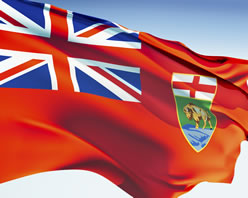Toronto Recommends Decriminalization
Toronto’s Board of Health is recommending decriminalization of all illegal recreational drugs following a new report by the city’s medical officer. Dr Eileen De Villa, Toronto’s medical officer of health, has taken the last year to work with her team on the best way to tackle Toronto’s growing opioid concerns. The opioid crisis is most prominent in the west of the country, with Vancouver being hardest hit, however, fentanyl and other analogues are now more common in the eastern provinces. There were 303 opioid overdose-related deaths in 2017 in Toronto, a 63% increase from 2016. Nearly 4000 Canadians died last year from opioid overdoses. Dr Eileen De Villa says “drug use has always been with us, humans have always used drugs in one way, shape or form. The potential harms associated with any of these drugs is worsened when people are pushed into a position where they have to produce, obtain, and consume those drugs illegally.” De Villa and her committee have been reviewing scientific literature, conferring with other jurisdictions, and speaking directly with drug users and others for the past year. The main jurisdictions analyzed were Portugal, Switzerland, and Germany. De Villa stated “they are getting reduced drug use rates. They are getting minimized harm associated with drug use and ultimately better community health as a whole.” The results of that report were presented on Monday to the Toronto Board of Health. The recommendations outlined in the report, namely to force the federal government to take a public health rather than a criminal approach to drug use, were unanimously approved by the board. Due to this approval, the federal government has now been issued a letter informing it of the board’s recommendation. The board also asked De Villa to forward her report to Ontario public health boards, the boards of health in Canada’s 10 largest cities, and the Ontario Public Health Association. The Toronto Board of Health is not the first to recommend decriminalization across the spectrum of substances. At the Liberal National Convention held in April in Halifax this year, Liberal party members passed a resolution to address the opioid crisis through a public health approach. As well, the proposition to decriminalize small amounts of illicit drugs was passed. Despite building public pressure, as well as scientific data in favour, the Liberal elite is still against decriminalization, with both the PM and Health Minister dismissing the possibility. References: Toronto Board of Health to Urge Federal Government to Decriminalize Drug Use Toronto’s Medical Officer of Health Wants Feds to Decriminalize All Drugs for Personal Use The post Toronto Recommends Decriminalization appeared first on Canada Drug...
Comment on Ontario by Ferryland government | unearthnewfoundland com
[…] Alcohol Treatment, Drug Rehab & Detox Programs for Ontario . – Comprehensive directory of drug rehab, alcohol treatment, and detox resources for Ontario, Canada. Private and public resources listed. […]
Comment on Contact by Nova Scotia Government Funded Drug Rehab & Alcohol Treatment Programs | Winnipeg Detox
[…] a substance or process addiction and are looking for drug and alcohol rehab in Nova Scotia, please contact our specialist for more […]
Comment on Nova Scotia by Nova Scotia Government Funded Drug Rehab & Alcohol Treatment Programs | Winnipeg Detox
[…] Nova Scotia only has approximately 2 government funded inpatient treatment programs. Unfortunately, these government-funded drug rehabs are usually only 21 days, and this often includes the time it takes to detox. This is not considered nearly long enough to have an impactful change on clients. While there are a few community-based addiction services, the bulk of resources are located in or close to Halifax, creating a disparity in access to services. […]
Comment on Contact by Nova Scotia Government Funded Drug Rehab & Alcohol Treatment Programs | BC Detox
[…] a substance or process addiction and are looking for drug and alcohol rehab in Nova Scotia, please contact our specialist for more […]
Comment on Nova Scotia by Nova Scotia Government Funded Drug Rehab & Alcohol Treatment Programs | BC Detox
[…] Nova Scotia only has approximately 2 government funded inpatient treatment programs. Unfortunately, these government-funded drug rehabs are usually only 21 days, and this often includes the time it takes to detox. This is not considered nearly long enough to have an impactful change on clients. While there are a few community-based addiction services, the bulk of resources are located in or close to Halifax, creating a disparity in access to services. […]




